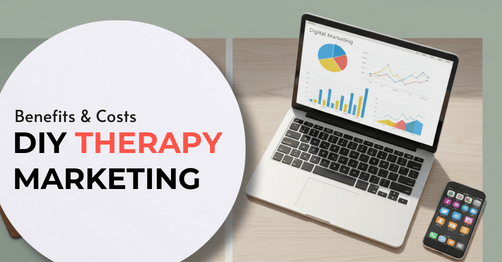Update on JANUARY 19, 2025: After a brief shutdown on Saturday, Jan 18th, the app is back online under the promise by President-elect Donald Trump to sign an executive to delay the TikTok ban. Full-time content creators and small business owners with monetized accounts should back up their videos and other marketing material only found on the app.
Update on JANUARY 14, 2025: ICYMI, the U.S. Supreme Court is deliberating on the constitutionality of an April 2024 law passed by the Biden administration, which required the app to be sold to a U.S.-based entity by January 19th, 2025. In response to the law, TikTok Inc. sued the administration on the grounds of free speech. According to an NPR article, the case entitled, TikTok v. Merrick Garland was presented before a lower court, which upheld the Justice Department’s concerns over the China-based parent company, ByteDance, and its data relationship to the Chinese government. While the Supreme Court deliberates, over 170 million American app users could be affected.
Depending on your industry, leveraging TikTok for business might be a contentious topic or a lucrative revenue stream.
TikTok, the short-form video app that launched internationally in 2017 grew to be one of the world’s most popular social media platforms. Yet, the platform’s rise in popularity has not been without controversy, leaving business owners questioning whether TikTok is still worth the investment, given the uncertainties surrounding its future in the United States.
In this article, we’ll explore the popular app’s current status, its parent company, controversies, and what this means if you’re interested in creating a TikTok for Business Account. Regardless of your decision, always be sure your social media channels align with a social media marketing strategy and channel goals.
What is TikTok and Who Owns It?
The social media app, TikTok, is a short-form video app that enables users to create, share, and watch videos ranging from 15 seconds to a few minutes in length. Since its international launch to its first global market in Indonesia in 2017, TikTok has become synonymous with viral content and trends, offering uniquely personalized user experiences thanks to strategic integrations and partnerships.
According to TikTok’s Newsroom, the social media app partnered with brands and organizations like the Toronto International Film Festival, National Football League, Calm, and Eventbrite, allowing users to engage more seamlessly with music, film clips, e-commerce, and ticketing platforms. Despite its popularity among users, TikTok’s ownership and data management practices sparked controversy over the last several years.

TikTok LLC, which operates the company, TikTok Inc., which owns the app available to users in the United States, is owned by ByteDance, an internet company founded in China in 2012. According to TikTok’s U.S. Data Security ‘Myths vs. Facts,’ ByteDance does not have an international headquarters, though TikTok LLC is headquartered in Los Angeles to bolster its presence and compliance in the American marketplace.
Why the Controversy with TikTok?
TikTok’s controversy stems from concerns about its data privacy practices and its parent company’s relationship with China. It’s worth noting that, according to TikTok’s U.S. Data Security ‘Myths vs. Facts,’ TikTok is unavailable to users in mainland China, and only their Chinese equivalent, Douyin, is available for download.
Under the most scrutiny at the moment, are TikTok’s data storage and privacy practices. In response to U.S. government concerns over data security, TikTok took measures to protect U.S. user data by creating the TikTok U.S. Data Security (USDS) team and its Project Texas initiative. As of June 2022, all U.S. user traffic is routed to Oracle’s infrastructure, managed exclusively by the USDS team in the U.S. Additionally, ByteDance committed to deleting any historic U.S. user data stored outside Oracle servers, aiming to end non-U.S. access to protected data. Their timeline for the completion of this task is unclear.
Despite these efforts, lawmakers argue that ByteDance’s ownership still poses a risk due to Chinese intelligence laws, as outlined in a June 2024 article by The New York Times. These laws could, in theory, require ByteDance to share data with the Chinese government if requested. For this reason, opponents have advocated for a ban on TikTok or a divestment of the app from ByteDance. According to the New York Times article, supporters comprised of content creators who rely on the platform for income, argue that such measures could infringe on freedom of speech.
In one instance that fueled skepticism about the company’s data security, several ByteDance employees misused their access to TikTok data in an attempt to identify journalists who leaked company information. This incident in 2022, reported by Variety, raised concerns about data access and whether U.S. user data could truly be isolated from foreign influence by a foreign-owned company.
The debate over TikTok’s presence has already resulted in several governments taking action. According to the June 2024 New York Times article, India banned the social media platform in 2020 following a crackdown on Chinese-owned apps.
Since then, Britain and its Parliament, Australia, Canada, the executive arm of the European Union, France, and New Zealand’s Parliament have all banned the app from official devices. More than 30 states in the United States, including New York City, have followed suit and banned TikTok from government-issued devices.
Looking Ahead: The State of TikTok in 2025
As of 2025, the fate of TikTok in the United States remains uncertain. As reported in a BBC article, President Joe Biden signed legislation mandating the sale of TikTok to a non-Chinese entity back in April 2024. ByteDance was given nine months, with a potential three-month extension, to comply with the sale requirement.
If ByteDance does not divest TikTok, the platform could face a U.S. ban in early 2025. ByteDance has filed a lawsuit against this legislation, which may delay the outcome by years.
What is TikTok Business & TikTok Business Center?
According to an August 2024 report by Statista, the United States remains one of TikTok’s largest markets, with around 120.5 million users, and as of February 2023, TikTok users in the United States spent 32% of the time they dedicated across all their social media accounts on TikTok. This is an indication that the popularity of the video app is not likely to decrease or wane.
For businesses interested in TikTok’s marketing potential to U.S.-based users, the platform offers several specialized features through its Business Center. To access the Business Center, users need a TikTok for Business Account, an ecosystem of tools designed to help businesses maximize their engagement and reach on the platform.
Key features include:
- Ads Manager: Businesses can create and manage paid advertising campaigns targeting specific demographics and interests.
- Creator Marketplace: This feature enables brands to connect with TikTok influencers for sponsored content, increasing their visibility and credibility on the platform.
- TikTok Shop: Small businesses with e-commerce models can use TikTok Shop to sell products directly within the app, making it easier for users to make purchases without leaving the platform.
Additionally, TikTok’s Business Center’s partner feature allows businesses to collaborate with external partners on assets without the need to grant individual access to the account. See the app’s instructions for creating a TikTok for Business Account.
Is a TikTok for Business Account Still Worth It?
Creating a TikTok for Business Account can provide many advantages, but it’s essential to weigh these against the challenges and potential risks of the non-existence of the app. Like any marketing strategy, understanding your target audience is crucial. If your business’s demographic is active on TikTok and likely to engage with your brand, it may be worth the time investment.
- Market Research: Assess whether your audience is on TikTok before investing time and resources into the platform. Not every demographic is active on TikTok, so it’s essential to know if the app aligns with your customer or client profile.
- Diversified Revenue Streams: Relying solely on TikTok for revenue is risky, particularly given the ongoing controversies. Small businesses in e-commerce, for instance, may find TikTok Shop valuable but should diversify to other social media and e-commerce channels to avoid over-dependence.
- Data Backup: Content creators and business accounts should regularly back up their videos and content to a secure location outside TikTok. This precaution can protect your content if TikTok’s availability changes due to new regulations or ownership shifts.
- Social Media Strategy: Like any social media channel, success on TikTok requires a clear strategy and measurable goals. Define your social goals for the platform and identify the metrics that matter most to your business.
How Can I Ensure My Data is Secure While Using TikTok?
While TikTok has implemented safeguards, businesses using the platform should still take precautions. Consider these steps:
- Data Privacy: Avoid sharing sensitive business or client information, and regularly review TikTok’s privacy policy and security guidelines to stay updated on the latest measures.
- Industry Bans: Some industries, such as government contracting or those working with sensitive data, may have restrictions on TikTok use. Businesses in these sectors should verify any existing bans before creating an account.
You can learn more about TikTok’s privacy practices and usage best practices on their website Privacy Policy and Community Guidelines.
Leverage TikTok for Business to Grow Your Social Presence
If you’re a small business owner interested in using TikTok as part of a broader social media strategy, GrowthSpurt Strategies can help. Schedule a consultation to discuss the platforms best suited to your business, and we’ll work together to develop a custom strategy that aligns with your goals and resources.
TikTok’s future may be uncertain, but for businesses targeting TikTok’s demographics, the platform can still offer valuable engagement and brand visibility.
More on Social Media…
If you’re looking at other social platforms, read about Instagram’s Algorithms and Ranking System to improve your content delivery and show up as a recommended account.
Source List
- TikTok. (2024). TikTok.com. Retrieved November 4, 2024.
- PR Newswire. (September 13, 2017). Tik Tok, a Global Music Video Platform and Social Network, Launches in Indonesia. PRnAsia.com. Retrieved November 4, 2024.
- TikTok. (November 2024). TikTok Newsroom. Website. Retrieved November 4, 2024.
- ByteDance. (November 2024). ByteDance. Website. Retrieved November 4, 2024.
- TikTok U.S. Data Security. (2024). Myths vs Facts. TikTok U.S. Data Security. Retrieved November 4, 2024.
- The New York Times. (June 20, 2024). Why the U.S. Is Forcing TikTok to Be Sold or Banned. The New York Times. Retrieved November 4, 2024.
- Variety. (December 22, 2022). ByteDance Fires Employees Who Improperly Accessed Data on U.S. TikTok Users, Including Two Journalists, Company Says. Variety Digital News. Retrieved November 4, 2024.
- BBC. (September 16, 2024). US TikTok ban: When and why could the app be outlawed? BBC Technology News. Retrieved November 4, 2024.
- Statista. (August 20, 2024). Countries with the largest TikTok audience as of July 2024. Online Video & Entertainment. Retrieved November 4, 2024.
- Statista. (April 6, 2024). Share of time spent among TikTok users in the United States engaging with social media apps as of February 2023. Social Media & User-Generated Content. Retrieved November 4, 2024.
- TikTok. (2024). TikTok Business Center. Website. Retrieved November 4, 2024.
- TikTok. (2024). Personal and Business Accounts on TikTok. TikTok Support Page. Retrieved November 4, 2024.
- TikTok. (August 19, 2024). Privacy Policy. Website. Retrieved November 4, 2024.
- TikTok. (April 17, 2024). Community Guidelines. Website. Retrieved November 4, 2024.



